This article was co-authored by The Verified Initiative of the United Nations. Verified is an initiative of the United Nations, to provide content that cuts through the noise to deliver life-saving information, fact-based advice and stories from the best of humanity. Led by the UN Department for Global Communications, the initiative also invites the public to help counter the spread of COVID-19 misinformation by sharing UN-verified, science-based content with their communities through articles, videos, and associated media. The initiative is a collaboration with Purpose, one of the world’s leading social mobilization organizations, and supported by the IKEA Foundation and Luminate.
There are 15 references cited in this article, which can be found at the bottom of the page.
This article has been viewed 54,076 times.
You may have heard a lot of different things about the new COVID-19 vaccines—some good, some questionable. For many, the vaccines are a brilliant medical breakthrough that will help pull us out of the pandemic, but there’s also a bunch of misinformation about them. With so much information being shared online, it can be tough to figure out what’s true and what isn’t. We’ve put together a list of some common myths floating around out there about the vaccines, so you can separate fact from fiction.
Steps
Expert Q&A
Did you know you can get expert answers for this article?
Unlock expert answers by supporting wikiHow
-
QuestionWhere can I find reliable information about COVID-19?
 David Nazarian, MDDr. David Nazarian is a board certified Internal Medicine Physician and the Owner of My Concierge MD, a medical practice in Beverly Hills California, specializing in concierge medicine, executive health and integrative medicine. Dr. Nazarian specializes in comprehensive physical examinations, IV Vitamin therapies, hormone replacement therapy, weight loss, platelet rich plasma therapies. He has over 16 years of medical training and facilitation and is a Diplomate of the American Board of Internal Medicine. He completed his B.S. in Psychology and Biology from the University of California, Los Angeles, his M.D. from the Sackler School of Medicine, and a residency at Huntington Memorial Hospital, an affiliate of the University of Southern California.
David Nazarian, MDDr. David Nazarian is a board certified Internal Medicine Physician and the Owner of My Concierge MD, a medical practice in Beverly Hills California, specializing in concierge medicine, executive health and integrative medicine. Dr. Nazarian specializes in comprehensive physical examinations, IV Vitamin therapies, hormone replacement therapy, weight loss, platelet rich plasma therapies. He has over 16 years of medical training and facilitation and is a Diplomate of the American Board of Internal Medicine. He completed his B.S. in Psychology and Biology from the University of California, Los Angeles, his M.D. from the Sackler School of Medicine, and a residency at Huntington Memorial Hospital, an affiliate of the University of Southern California.
Diplomate, American Board of Internal Medicine There's a lot of information across the web, and at times, some of this information can be unreliable. Fortunately, there are a lot of good sites set up to provide reliable information to the public. The Centers for Disease Control and Prevention (CDC) is a great site to obtain information about COVID-19 and how to protect yourself. Your local Department of Public Health can also be a valuable source of information, as well as the World Health Organization website.
There's a lot of information across the web, and at times, some of this information can be unreliable. Fortunately, there are a lot of good sites set up to provide reliable information to the public. The Centers for Disease Control and Prevention (CDC) is a great site to obtain information about COVID-19 and how to protect yourself. Your local Department of Public Health can also be a valuable source of information, as well as the World Health Organization website. -
QuestionHow can an essential worker stay safe if they haven't gotten a vaccine?
 David Nazarian, MDDr. David Nazarian is a board certified Internal Medicine Physician and the Owner of My Concierge MD, a medical practice in Beverly Hills California, specializing in concierge medicine, executive health and integrative medicine. Dr. Nazarian specializes in comprehensive physical examinations, IV Vitamin therapies, hormone replacement therapy, weight loss, platelet rich plasma therapies. He has over 16 years of medical training and facilitation and is a Diplomate of the American Board of Internal Medicine. He completed his B.S. in Psychology and Biology from the University of California, Los Angeles, his M.D. from the Sackler School of Medicine, and a residency at Huntington Memorial Hospital, an affiliate of the University of Southern California.
David Nazarian, MDDr. David Nazarian is a board certified Internal Medicine Physician and the Owner of My Concierge MD, a medical practice in Beverly Hills California, specializing in concierge medicine, executive health and integrative medicine. Dr. Nazarian specializes in comprehensive physical examinations, IV Vitamin therapies, hormone replacement therapy, weight loss, platelet rich plasma therapies. He has over 16 years of medical training and facilitation and is a Diplomate of the American Board of Internal Medicine. He completed his B.S. in Psychology and Biology from the University of California, Los Angeles, his M.D. from the Sackler School of Medicine, and a residency at Huntington Memorial Hospital, an affiliate of the University of Southern California.
Diplomate, American Board of Internal Medicine
Warnings
- Always verify the source of information before you share it on places such as social media to help prevent the spread of misinformation.⧼thumbs_response⧽
References
- ↑ https://www.vcuhealth.org/news/covid-19/vaccine-myths-facts-vs-fiction
- ↑ https://www.cdc.gov/coronavirus/2019-ncov/vaccines/different-vaccines/mrna.html
- ↑ https://www.astho.org/COVID-19/Pfizer-Moderna-Vaccine-Comparison/
- ↑ https://www.cdc.gov/vaccines/basics/test-approve.html
- ↑ https://www.vcuhealth.org/news/covid-19/vaccine-myths-facts-vs-fiction
- ↑ https://www.cdc.gov/coronavirus/2019-ncov/vaccines/expect/after.html
- ↑ https://www.cdc.gov/coronavirus/2019-ncov/vaccines/facts.html
- ↑ https://medlineplus.gov/ency/article/002024.htm
- ↑ https://www.cdc.gov/coronavirus/2019-ncov/vaccines/facts.html
- ↑ https://www.hopkinsmedicine.org/health/conditions-and-diseases/coronavirus/covid-19-vaccines-myth-versus-fact
- ↑ https://www.hopkinsmedicine.org/health/conditions-and-diseases/coronavirus/covid-19-vaccines-myth-versus-fact
- ↑ https://www.cdc.gov/coronavirus/2019-ncov/vaccines/faq.html
- ↑ https://www.cdc.gov/coronavirus/2019-ncov/vaccines/facts.html
- ↑ https://www.cdc.gov/coronavirus/2019-ncov/vaccines/expect/after.html
- ↑ https://www.cdc.gov/coronavirus/2019-ncov/vaccines/expect/after.html
- ↑ https://www.entnet.org/content/allergic-reactions-related-covid-19-vaccinations-allergic-patients
- ↑ https://www.cdc.gov/vaccinesafety/concerns/autism.html
- ↑ https://www.vcuhealth.org/news/covid-19/vaccine-myths-facts-vs-fiction
- ↑ https://www.cdc.gov/coronavirus/2019-ncov/transmission/variant.html
- ↑ https://www.mayoclinic.org/diseases-conditions/coronavirus/in-depth/coronavirus-vaccine/art-20484859
- ↑ https://www.jhsph.edu/covid-19/articles/why-covid-19-vaccines-offer-better-protection-than-infection.html
- ↑ https://www.cdc.gov/coronavirus/2019-ncov/hcp/duration-isolation.html
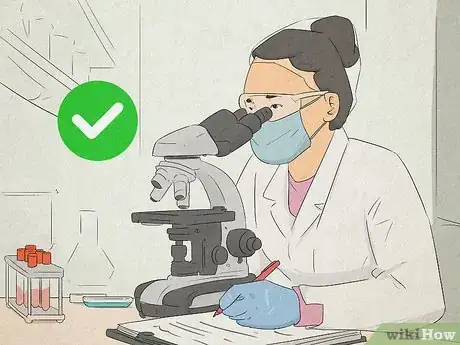
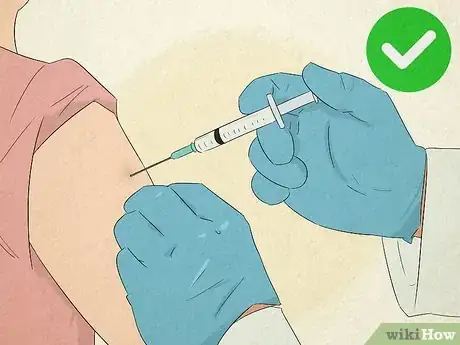
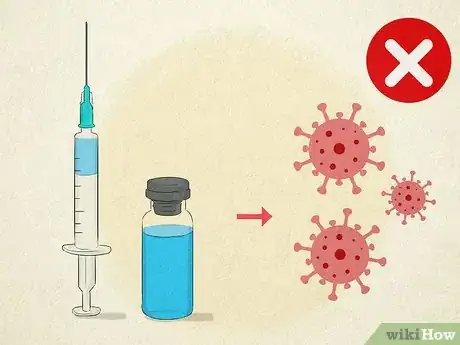
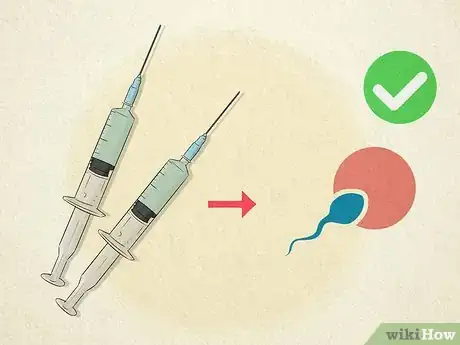
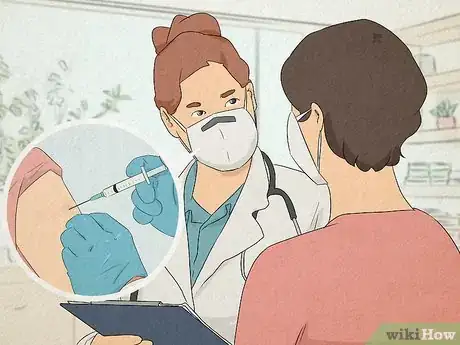
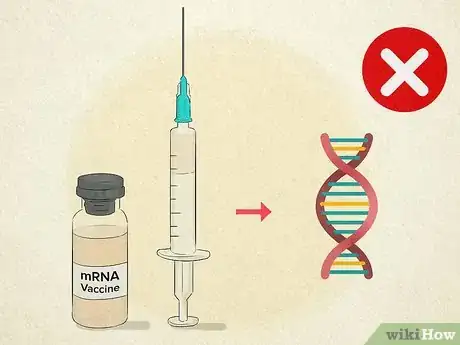
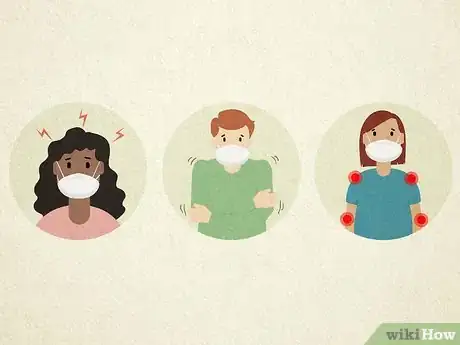
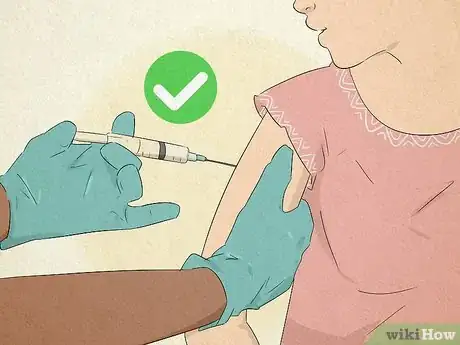
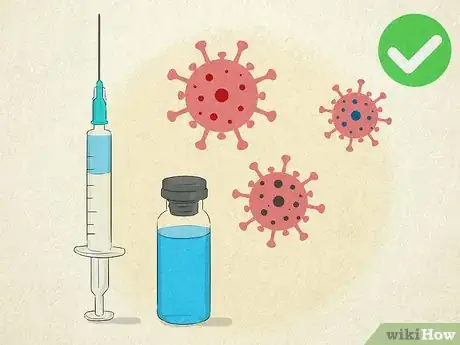
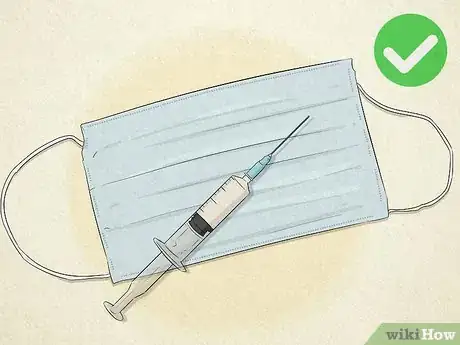

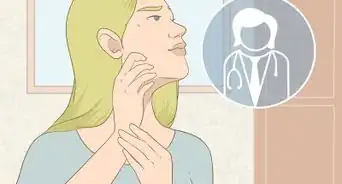
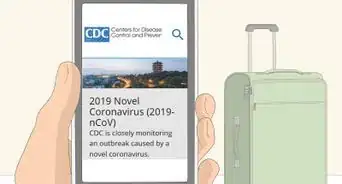




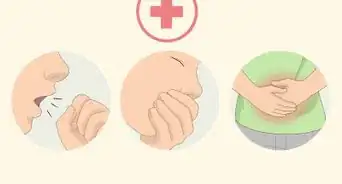


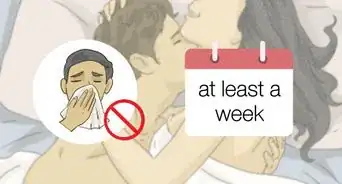









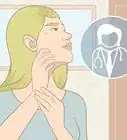




































Medical Disclaimer
The content of this article is not intended to be a substitute for professional medical advice, examination, diagnosis, or treatment. You should always contact your doctor or other qualified healthcare professional before starting, changing, or stopping any kind of health treatment.
Read More...